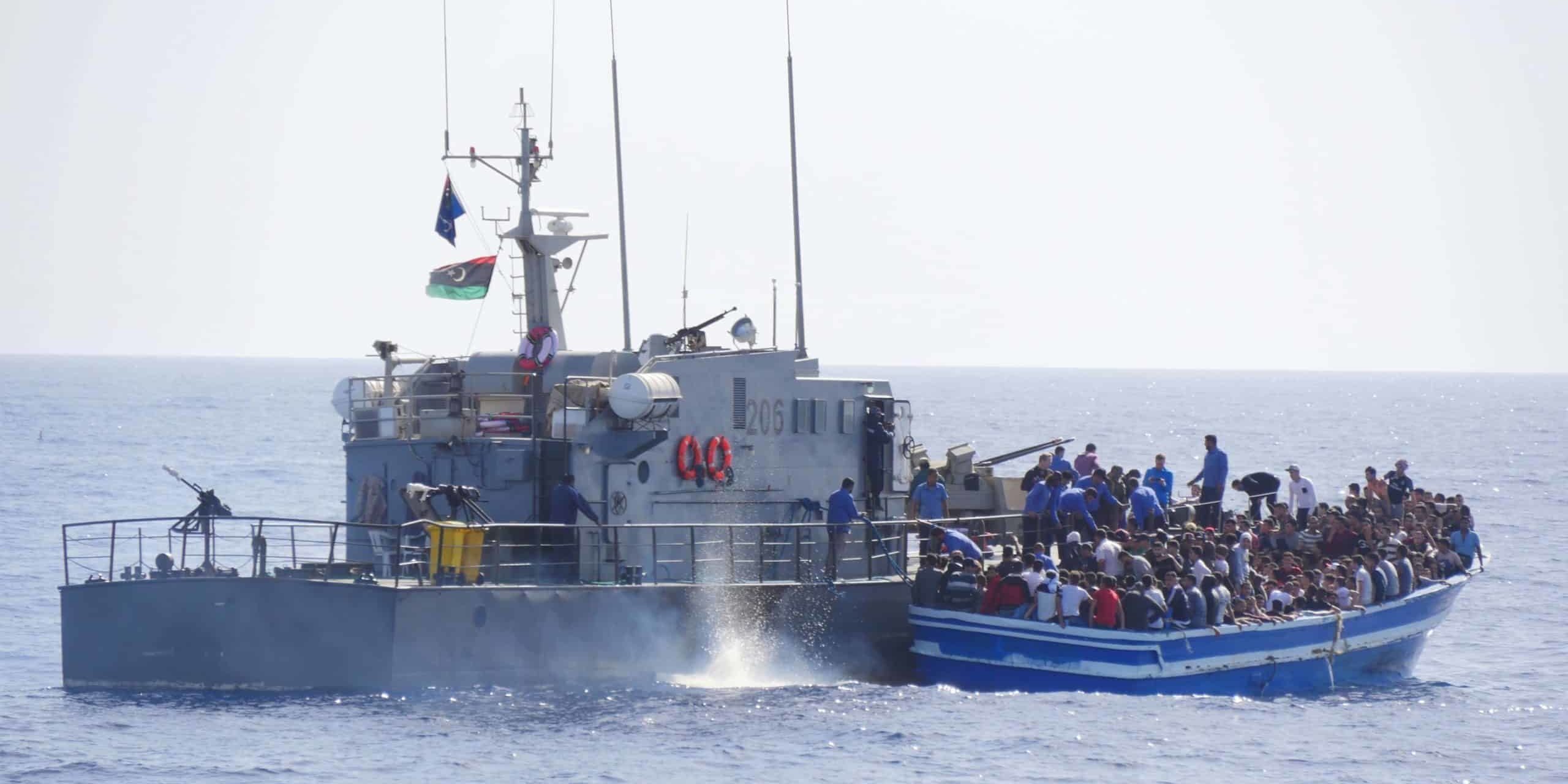Sea-Watch has demanded of the International Criminal Court (ICC) in The Hague to extend the ongoing investigation of human rights violations in Libya to the activities of the Libyan Coast Guard. Most concerning is the forced return of migrants to Libya, documented by Sea-Watch yet again in an incident last week which constitutes a violation of international law. A swift take-up of investigations could prevent further serious crimes.
“The conditions in Libya’s camps, some of which are led by militia and self-proclaimed warlords, are known: extortion, torture, and sexual exploitation are common. The German Foreign Office has recently stated that there is no legal administration in Libya. It is therefore imperative to penalize serious violations by the international community. The ICC is the only authority that could become active here,” says lawyer Jens Janssen.
“The Mediterranean is the deadliest border in the world. If someone risks the dangerous crossing to Europe, then only because Libya’s disastrous conditions are even more life threatening. One cannot send people back to a country where they face rape and imprisonment. This does not only violate the non-refoulement principle of the Geneva Refugee Convention, but also goes against any sense of humanity,” says CEO Axel Grafmanns.
Background
During the incident on May 10th 2017, members of the Libyan Coast Guard obstructed a rescue operation by the Crew of Sea-Watch 2 who was sent by the Maritime Rescue Coordination Center (MRCC) to help a wooden boat in distress at 19 Nautical Miles off the coast, outside of Libyan territorial waters. The Libyan Captain forced the migrants to return to Tripoli with the Patrol vessel, pointing a gun at them.
“It is not the first time that Sea-Watch documents how people are forced back to Libyan shores against their will. Within territorial waters, they can violate international law just like they do on land. But this refoulement from the contiguous zone clearly breaches the Non-Refoulement Principle of the Geneva Refugee Convention”, says Grafmanns. Any intervention of the authorities in the contiguous zone concerning migrating boat people cannot be justified by Libyan rights to control economic infringements like oil smuggling or illegal fishing. Interception and redirection of migrants are never “necessary” practices for investigating violations of Libyan law.
In her study of the Principle of Non-Refoulement, Seline Trevisanut, Professor of International Law at Utrecht University, states: “The protection of a minor interest, as preventing a violation of its migration law, does not justify any kind of intervention. […] Consequently, once the coastal state exercises its jurisdictional powers intercepting and redirecting the vessel, it must consider whether its action may put the passengers of the concerned vessel at risk of persecution, torture or other inhuman treatments. The need of proportionality emerges in relation to the operations accomplished by states authorities on the high seas for contrasting unlawful migration.”
video footage Raoul Kopacka
https://www.youtube.com/watch?v=ONWduazMDpo











